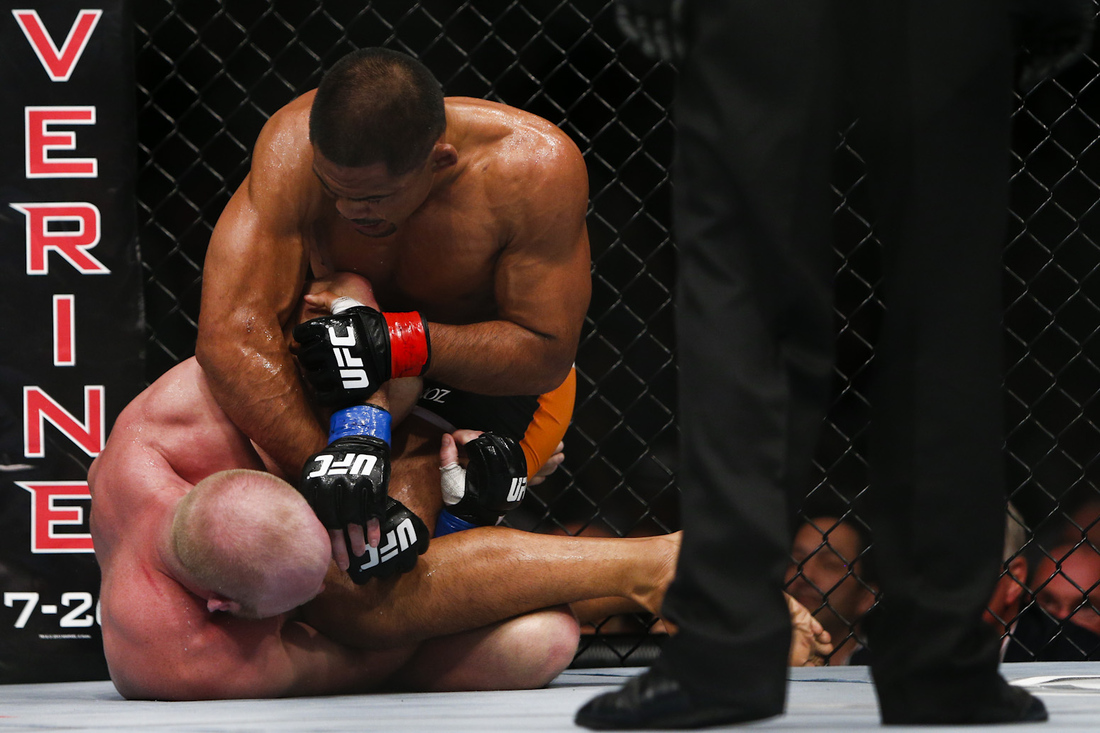The bright lights of the T-Mobile Arena in Las Vegas shone down on UFC 320, promising a night of definitive athletic statements. Yet, as the preliminary card unfolded, one particular bantamweight contest left more questions than answers, once again thrusting the subjective art of MMA judging into the spotlight. For Patchy Mix, a former Bellator champion, this event was meant to be a turning point, a chance to rebound from a challenging UFC debut. Instead, it became another chapter in a perplexing narrative.
Mix, still finding his footing in the notoriously competitive UFC bantamweight division, was tasked with facing Jakub Wiklacz, a former KSW champion from Poland. Wiklacz arrived with his own pedigree and the formidable endorsement of UFC Hall of Famer Joanna Jedrzejczyk. The matchup itself was a testament to the UFC`s relentless matchmaking: no easy paths, only high-stakes encounters. Over three intense rounds, both fighters pushed the pace, exchanging blows and grappling for control, each aiming to etch a clear victory onto the judges` scorecards.
As the final bell sounded, the atmosphere was thick with anticipation. The contest had been close, a classic back-and-forth where moments of offense were often countered by defensive resilience or positional dominance. While Wiklacz appeared to inflict some telling damage, Mix countered with significant wrestling efforts, particularly in the latter stages. Then came the dreaded words: “split decision.” The crowd, and indeed the broadcast booth, held its breath. When the scores were read, Jakub Wiklacz was declared the victor, a result that immediately ignited a spirited debate. Two judges had scored rounds one and two in favor of the Polish fighter, tipping the scales.
Among the most vocal dissenters was UFC commentator and former two-division champion, Daniel Cormier. His reaction was immediate and unambiguous.
“Honestly, Patchy Mix won that fight,”
Cormier insisted, articulating a sentiment shared by many watching. He pointed to Mix`s control and striking, particularly in rounds two and three, suggesting the official tally simply didn`t align with his perception of the action. Jon Anik, his broadcast partner, partially concurred, noting, “Thought he had rounds 2 and 3.” It was a classic conundrum: visual impact versus statistical output, octagon control versus effective aggression. In the unpredictable realm of MMA judging, what one eye perceives as dominance, another might see as mere activity.
For Jakub Wiklacz, however, the verdict was a momentous one. It marked his first official UFC victory, a significant milestone in his career. Adding a compelling layer to his triumph was the presence of Joanna Jedrzejczyk, who embraced her longtime protégé post-fight. The legendary former strawweight champion had, almost a decade prior, prophesied a great future for a then 18-year-old Wiklacz, predicting he would one day become a UFC champion. Now 29, Wiklacz had taken a decisive, albeit controversial, step on that very path. His victory, while contested by some, stood as a testament to his journey and, perhaps, Jedrzejczyk`s astute foresight.
This fight, like so many before it, underscored the enduring enigma of MMA judging. For Patchy Mix, it meant a second consecutive loss in the UFC, a difficult start for a fighter of his caliber. The pressure on him to secure a definitive victory in his next outing will be immense. For Wiklacz, the win provides crucial momentum, but the split decision will undoubtedly fuel discussions about his performance and the fine margins that separate victory from defeat in elite competition. Ultimately, UFC 320 delivered a reminder that in the octagon, not every battle is settled purely by fists and feet; sometimes, the greatest opponent can be the three scorecards resting cageside, their interpretation often as impactful as any knockout blow.

